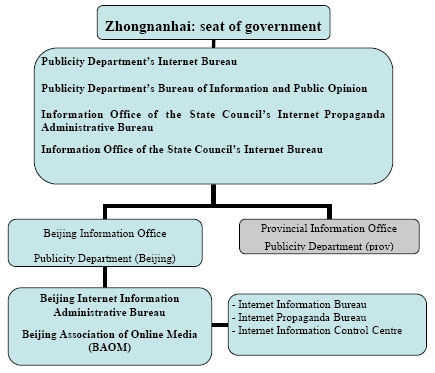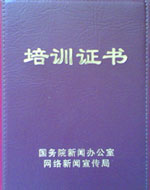In this roundup: Two interesting documents related to Internet censorship and circumvention were published recently: (1) “Everyone's Guide to By-Passing Internet Censorship for Citizens Worldwide“, released by The University of Toronto’s Citizen Lab and (2) a “Journey to the Heart of Internet censorship” in China, released by RSF and Chinese Human Rights Defenders, and written by an anonymous Chinese technician. (3) In Jordan sending emails and writing online poems can send you to jail. (4) Is Facebook blocked in the United Arab Emirates? (5) and much more on Global Voices Advocacy blog.
“Everyone's Guide to By-Passing Internet Censorship for Citizens Worldwide”.

This is a rich and user-friendly guide released by The University of Toronto’s Citizen Lab, which is meant to introduce non-technical users to Internet censorship circumvention technologies, and help them choose which of them best suits their circumstances and needs.
The Guide provides a large range of tips, tricks and strategies on how to bypass content filters worldwide, and outlines the considerations you should take into account when choosing a circumvention tool. It also offers a list of the best circumvention tools, from both a privacy and security perspective, for users who are not technically proficient. According to Ronald Deibert, director of Citizen Lab and investigator at the OpenNet Initiative, the guide, which is currently available only in English, is in the process of being translated into multiple languages.
The Citizen Lab is also behind the development of Psiphon project, a censorship circumvention software that allows citizens in censorship-free countries to provide unfettered access to the Web through their home computers to those living in countries where the Internet is censored.
You can download the guide in Adobe Acrobat format (PDF) from here: Everyone’s Guide to By-Passing Internet Censorship for Citizens Worldwide.
China: A “Journey to the Heart of Internet censorship”.
This report, released with the support of Reporters Without Borders (RSF) and Chinese Human Rights Defenders (CHRD), was written by a Chinese technician working for an Internet company and using the pen name “Mr. Tao”. The report details the mechanism of the Chinese censorship system that spans The Internet Propaganda Administrative Bureau, The Center for the Study of Public Opinion, The Internet Bureau and The Bureau of Information and Public Opinion.
This report shows how the CCP and the government have deployed colossal human and financial resources to obstruct online free expression. Chinese news websites and blogs have been brought under the editorial control of the propaganda apparatus at both the national and local levels.
“Journey to the Heart of Internet censorship” reveals how The Information Office of the State Council is exercising ideological control over its employees by organizing a 25-day course on how to improve censorship and self-censorship practices. “Twenty five-day courses for 50 people at a time have already been held in Beijing. A certificate is issued to participants at the end of each course.”
The report also documents the relentless control of prominent news websites based in Beijing by the Beijing Internet Information Administrative Bureau and provides numerous examples for the three categories of instructions (bans issued before publication of a report, bans issued after publication of a report and propaganda instructions).
Download the report (also available in other languages) in Adobe Acrobat format (PDF) from here: “Journey to the Heart of Internet censorship”.
Jordan: sending emails and writing online poems can send you to prison!
Yesterday (October 9, 2007), Ahmad Oweidi al-Abbadi, the 62-year-old former parliamentarian and leader of the Jordanian National Movement, was sentenced to two years in prison for “undermining state dignity”, “sending false news through emails” and “illegally distributing leaflets.”
Ahmad Oweidi al-Abbadi was arrested on May 3, 2007, for accusing the government of corruption in an open letter emailed to US senator Harry Reid. “The jailing of Ahmad Oweidi shows that Jordan’s government hasn’t shaken off its old habits of going after critics by putting them in prison,” said Sarah Leah Whitson, Middle East director at Human Rights Watch.
According to the Jordanian Al-Ghad newspaper [Ar], another Jordanian has been sentenced to 18 months in prison for writing and publishing poems on Jihadi websites praising Al Qaeda leader Osama Ben Laden. Mohammed Al-Zohairi, who is being depicted as “Al Qaeda Poet” was arrested in August 9, 2007 and charged with offense against the royal dignity.

Facebook blocked in the United Arab Emirates?
According to Download Squad, access to the popular social networking website Facebook has been blocked in the United Arab Emirates. Some UAE internet users are confirming that the ban was ordered by the government-owned Etisalat. The Administrator of itihad.net (UAE) called up his ISP’s call center and they stated that they are blocking Facebook.
Other Internet users, however, are reporting (here [Ar], here [En] and here [En]) they can access the website and that there is no blocking at their end.
On September 05 2007, The UAE Telecommunications Regulatory Authority (TRA) told Time Out Dubai that “At the present time we can say that we have no intention of stopping access to Facebook (…) We have heard that people think this is going to happen but that is not the case. However, we do take any complaints seriously and the situation would be reviewed should that happen.”
Apparently, it seems that Facebook is blocked to some people, but not to all. Nevertheless, UAE Facebook community has setup a petition to keep facebook from being permanently blocked. The petition has already more than 690 signatures. According to Time Out Dubai, “Facebook has over 55,000 users in the UAE with numbers rising daily.”
Almost the same thing happened last month in Iran when HAMSA’s “C.R.I.M.E” reported that Facebook was being blocked, relying on Information provided by the “Against internet censorship and filtering in Iran” Facebook group. Hamid Tehrani, Global Voices’ Persian Language Editor, was following the case through his contacts in Iran, received contradictory reports and screenshots from trusted bloggers proving that the ban was most likely on the ISP level and not an official ban.
Some of the inaccurate reporting on the Iran issue illustrated the difficulties of reporting on anti-censorship issues. As Global Voices co-founder Ethan Zuckerman has said, “one of the major challenges of documenting and decrying Internet censorship is that it can be very confusing to figure out precisely why you can’t access a particular website. Is the problem specific to your internet service provider? Is the server down? Or is a block of some sort taking place?” Zuckerman cited the reaction to the ban on Blogspot.com in India in July 2006, during which Indian bloggers were documenting and carefully updating the situation, as a good example of anti-censorship reporting.









2 comments
I wasn’t able to get the guide in China…. Is that a paradox?
Unfortunately the responsible freedom of thought and expression in Jordan has a long way to go. We seem to be stuck in an very confused phase.
Not only are we censored, penalized and self-censored, but we are suffering from a lot of bad practices in the industry – on small and large scale. The situation is grim right now and will be so for a while.
Check out the difference in attitude between legacy media and citizen journalists in this Forum back in Feb, watch video recording (Arabic, sorry English no subs!):
http://naydynmoody.blogspot.com/2007/10/spinning-tales-of-monkey-in-wonderland.html
Since this talk, we have regressed.
And on the other hand we have double standards when it comes to entertainment media regulation or the lack of it: http://naydynmoody.blogspot.com/2007/09/avc-is-missing-another-c.html
There’s a lot of hard work ahead. This is a sad subject for me and quite exhaustive – I’ve been going round in circles blogging about it non-stop for a couple months. I strongly believe we need to keep a constant dialog going, and with every stage push the envelope further!